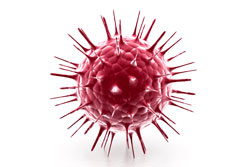 Infectious diseases pose a severe health threat for all nations, especially in economically challenged countries. Emerging infectious diseases such as the current COVID-19 pandemic, and the earlier bird flu or swine flu are posing an impending global threat.
Infectious diseases pose a severe health threat for all nations, especially in economically challenged countries. Emerging infectious diseases such as the current COVID-19 pandemic, and the earlier bird flu or swine flu are posing an impending global threat.
Conventional treatments of infectious diseases based on expensive pharmaceutical drugs have limited efficacy and are often associated with serious side effects.
People are constantly exposed to infectious agents such as bacteria, viruses, and other foreign invaders, however only some get sick. It has been established that susceptibility to infections is affected by nutrition status and a healthy lifestyle. It is well known that the function of immune system, such as production of white blood cells and antibodies, requires a variety of micronutrients including vitamin C, the B vitamins, selenium, zinc, and many others. These and other natural compounds can also affect infectious agents directly impairing their metabolism and spread in the body. However, micronutrient requirements are largely ignored in preventive and therapeutic aspects of infections despite their representing a safe and cost-effective approach especially, where nutrient abnormalities or malnutrition are underlying causes.
Cellular medicine research has demonstrated the power and potency of natural compounds in blocking the multiplication and spread of infectious agents linked to the most recent SARS -CoV-2 infections the cause of COVID-19 pandemic, as well as other viral infections including human influenza, bird flu, and AIDS. Our studies, including clinical research, also document the efficacy of micronutrients against bacterial infections such as Lyme disease (Borreliosis), tuberculosis, and Streptococcus infections associated with gum and dental problems.
Here, we summarize the important findings from our research on novel micronutrient-based approaches effective in the natural control of infectious diseases and supporting immune system function.